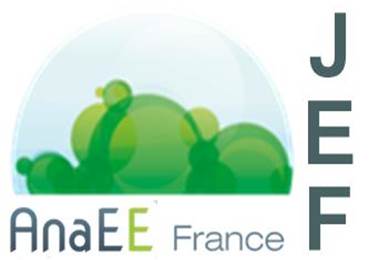|
|
|
Sessions and keynotesI) Species responses to climate change and resource availability: flexibility mechanisms from the individual to the population On-going climatic and anthropic changes require a functional adjustment of organisms in order to survive and reproduce in the changing environment. At the individual level, plasticity may provide such an adjustment. At the population level, mechanisms of functional flexibility can involve genetic adaptation under changing selective pressures. However, response to rapid environmental changes may require faster mechanisms of flexibility such as epigenetic effects on trans-generational phenotype transmission and increased phenotypic plasticity at the individual level. This session will welcome contributions on the functional flexibility of species in response to environmental changes, which can be investigated along environmental gradients, in common gardens comparing different populations, or in experiments manipulating the environmental conditions. Keynote Speaker: Prof. Jaume Flexas, Universitat de les Illes Balears, Deparment of Biology http://www.researcherid.com/rid/C-1898-2012
II) Stoichiometry of biogeochemical cycles at various scales The cycling of major elements transcends all levels of biological organization from cells up to the globe. Because of the complexity of involved processes and element-specific properties of the cycles, the different elements are commonly studied in isolation from each other. However, following the rules of ecological stoichiometry, the exchange of different elements within and among organisms and between the organisms and the environment is typically coupled. In this session we welcome contributions that shed light on the biogeochemical cycling by specifically incorporating a multiple elements approach. The focus can be on any portion of the cycles and may cover small (e.g. microbial transformation processes) to very large spatial and temporal scales (e.g. biosphere-atmosphere exchanges). Experimental as well as modelling studies will have their place in this session and combinations of the two are particularly welcome. Keynote Speaker: Dr. Michael Danger Laboratoire Interdisciplinaire des Environnements Continentaux, Université de Lorraine, Metz http://scholar.google.fr/citations?hl=fr&user=9G9nK1MAAAAJ&view_op=list_works&sortby=pubdate
III) Functional ecology and agro-ecology: deepening the links A more ecological approach of agronomy is needed to reduce the negative environmental impacts of agriculture and to increase the sustainability of the food production systems as well as the quality of the harvested products. From a short term concern on yield and resting on large amounts of inputs, agronomy needs now to take more advantage of the intrinsic capacities and resources of ecosystems. Maximising these capacities and resources needs a thorough understanding of the processes and interactions governing the functioning of ecosystems at various scales, a domain explored by ecology primarily in ecosystems with much less impact than cultivated fields. However, the concepts, theories or experimental results being developed in ecology, which could be worth considering for an agronomic ecological engineering, have not yet been fully spelled out. This session will try to determine to what extent agriculture could benefit from the ecological concepts built in natural ecosystems and how these concepts could be further developed in the frame of the manipulated agrosystems. Within the context of resources management, at the organisms or ecosystems levels, this session will welcome contributions by agronomists and ecologists on what might be the principles for improving the sustainability of ecosystems productivity at various levels of inputs. Contributions could be conceptual, model based, but presentation of results suggesting directions to take will also be welcome. Keynote Speaker: Dr. Sébastien Barot, Institut d’Ecologie et des Sciences de l’Environnement-Paris http://www.researcherid.com/rid/A-8447-2012
IV) Enhancing dialogue between modellers and experimentalists What’s new should be modelled and what should be measured additionally? Experimental and modeling approaches are strongly complementary and this complementarity is central to the success of functional ecology to tackle current environmental problems. Nevertheless, is the dialogue between modelers and experimentalists frequent enough? This session will give the opportunity for experimentalists to describe work whose results might be worth to be introduced in models. Alternatively modelers will present work suggesting missing process understanding or adequate data sets. Keynote Speaker: Prof. Dr. Frank Ewert, Director - Leibniz Centre for Agricultural Landscape Research (ZALF) http://scholar.google.de/citations?hl=de&user=MThlD8oAAAAJ&view_op=list_works&sortby=pubdate
V) Emerging approaches and tools in functional ecology This is an open session where new approaches to functional ecology (for example using information gene expression modification under environmental changes to guide ecophysiological investigations), new methodologies (special statistics…) or new instrumentation could be presented.
VI) Open sessions Open sessions will welcome contributions presenting new developments in functional ecology and which does not fit in the above defined sessions. A new session theme could emerge from the proposed contributions. |
| Online user: 1 | RSS Feed |

|

